Mycetoma Crisis in Sudan: Collateral Damage of the Ongoing War
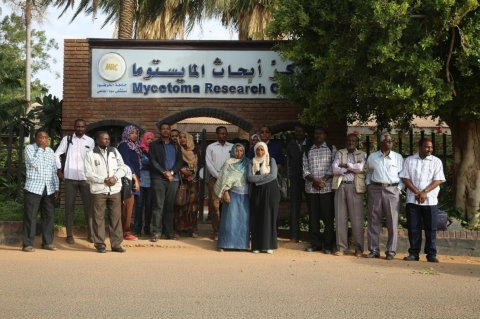
Professor Ahmed Hassan Fahal, Professor of Surgery at University of Khartoum, writes in this blog about Mycetoma crisis in Sudan, a further casualty of the war in Sudan.
The sudden eruption of hostilities in Sudan on the fateful day of April 15, 2023, has sent shockwaves throughout the region, leaving a trail of destruction in its wake. Among the many casualties of this conflict is the Mycetoma Research Centre (MRC) at the University of Khartoum, a beacon of hope in the battle against mycetoma and neglected tropical diseases (NTDs). As the sole WHO Collaborating Center on Mycetoma and Skin NTDs, this institution has been a linchpin in the global effort to combat mycetoma, a debilitating and often-overlooked condition.
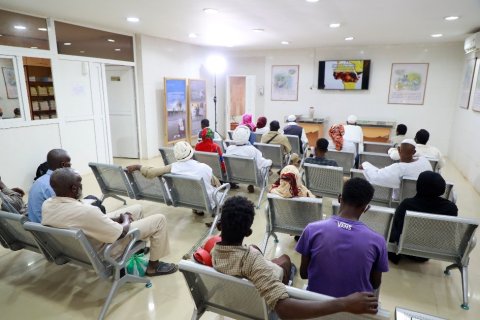
The ramifications of the Sudan war have reverberated profoundly, creating a cascading effect that has severely compromised the Mycetoma Research Centre's ability to fulfil its critical mission. One of the immediate casualties of this conflict is the provision of care to mycetoma patients. The catastrophic impact on patients' care is multifaceted, ranging from the scarcity of essential medications to the disruption of treatment protocols. Patients, who were once beneficiaries of comprehensive and free management now face uncertainty and a lack of access to the vital care they desperately need.
Equally distressing is the profound setback to mycetoma research. The MRC, previously at the forefront of groundbreaking studies and innovative approaches to combat mycetoma, now finds its laboratories silenced and its research initiatives abruptly halted. The war has not only disrupted ongoing projects but has also undermined the potential for future discoveries that could have brought relief to millions suffering from this neglected tropical disease.
International collaboration, a cornerstone of the Mycetoma Research Centre's success, has also fallen victim to the conflict. The exchange of knowledge, expertise, and resources across borders has been stymied, hindering the global effort to address mycetoma comprehensively. The breakdown of international collaboration threatens to exacerbate the challenges faced by researchers and healthcare professionals striving to develop effective prevention, diagnosis, and treatment strategies.
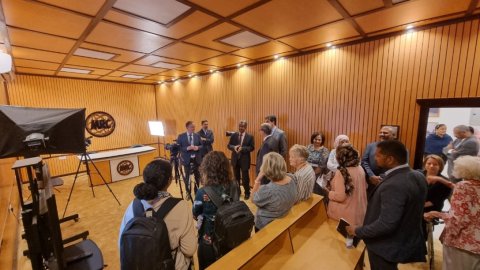
Once humming and buzzing with the energy of scientific inquiry and discovery, the MRC laboratories now lie silent and idle. The war has rendered these crucial spaces inaccessible or compromised, disrupting experiments, studies, and analyses that were underway to unravel the mysteries of mycetoma. The cessation of laboratory activities halts ongoing research projects and threatens to erase invaluable progress in understanding the disease, its pathology, and potential treatment modalities.
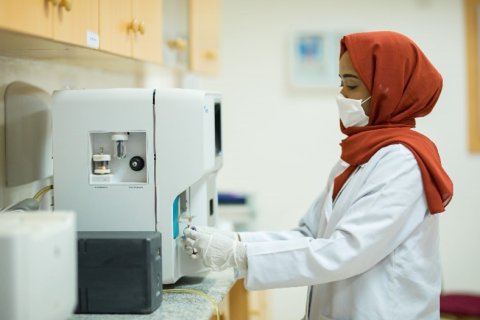
Research facilities, equipped with state-of-the-art technology and manned by dedicated professionals, now face the grim reality of functional decay. The war has hampered these facilities' regular maintenance and upkeep, jeopardising the integrity of specialised equipment essential for diagnostic purposes, genetic studies, and drug development. The degradation of research facilities strikes at the heart of the Mycetoma Research Centre's ability to contribute meaningfully to the global fight against this often-neglected disease.
The immediate aftermath of the hostilities has left the MRC staff and researchers grappling with unprecedented challenges. The sudden onset of conflict has disrupted the normal functioning of the center, rendering its dedicated professionals powerless in the face of adversity. Many staff members find themselves in perilous situations, with personal safety compromised as they navigate the complex and hazardous landscape of war-torn Sudan to continue their mission.
Once a catalyst for awareness and understanding of mycetoma, vital community engagement initiatives now hang in the balance. The war has created an environment of fear and uncertainty, making it challenging to sustain outreach programs and educate communities about the importance of early detection and prevention. The very fabric of the community engagement efforts, meticulously woven over the years, is unravelling, leaving communities vulnerable and unaware of the looming health threats.
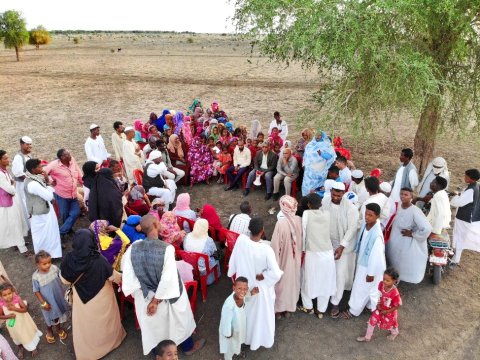
In this context, the Mycetoma Vocational and Entrepreneurship Training Centre, one of its kind initiative designed to empower mycetoma patients through vocational skills development and entrepreneurship initiatives, has been forced to shut its doors. This not only deepens the economic vulnerability of those affected by mycetoma but also diminishes the resilience of communities grappling with the fallout of conflict.
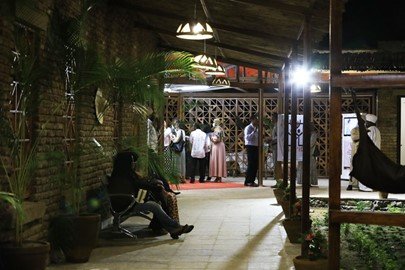
The overall impact on the Mycetoma Research Centre's ability to function optimally is nothing short of devastating. The intricate web of interconnected components that sustains the centre's daily operations, from laboratory experiments to patient consultations, is unravelling. The seamless synergy between research, diagnosis, and treatment that was once a hallmark of the Mycetoma Research Centre is now threatened, posing a dire risk to the comprehensive care that patients depend on.
Regrettably, the international response to support the Mycetoma Research Centre and its affiliated initiatives has been wanting. The urgency of the situation demands swift and robust intervention from the global health community to mitigate the far-reaching consequences of the Sudan war on mycetoma patients and the dedicated professionals working tirelessly to combat this neglected tropical disease.
As we grapple with the ongoing crisis, it is imperative that the global health community rallies together to safeguard the gains made in mycetoma research, patient care, and community engagement. Despite the current challenges, the Mycetoma Research Centre remains a symbol of resilience and determination. Our collective responsibility is to ensure that this center, and others like it, receive the support they need to weather this storm and continue their vital work in the service of global health.
Prof Ahmed Hassan Fahal
FRCS, FRCSI, FRCS(Gal), MS, MD, FRCPath, FRCP(London)
Professor of Surgery, University of Khartoum
The Mycetoma Research Centre, University of Khartoum
WHO Collaborating Center on Mycetoma and Skin NTDs
